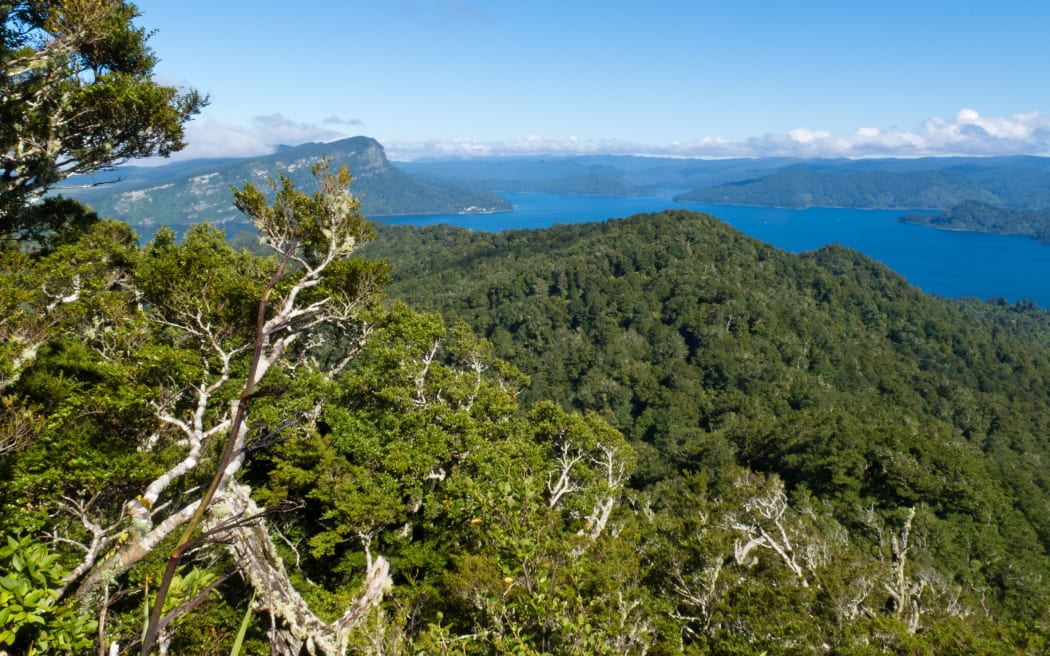
Chris Finlayson has accused Genesis energy of negligence over weed management at Lake Waikaremoana. Photo: 123rf
*This story has been updated on 12 January, 2024, to include clarification from Genesis Energy regarding the lease of the land, and its environmental management and mitigation efforts at Lake Waikaremoana.
A former National minister and deputy chair of Te Urewera Board has accused energy company Genesis of negligence in its management of weeds at Lake Waikaremoana.
The East Coast's great walk reopened yesterday after nearly 11 months of repairs following Cyclone Gabrielle.
The lake is Māori land, majority owned by Ngāi Tūhoe, and the Crown - which has a majority stake in Genesis - leases the lake.
The company has been able to use the lake for energy production via an "operating easement", which Land Information New Zealand explains "is a right agreed between a landowner and another party to use land for a particular purpose, and can be registered against the property's title."
Deputy chairperson of Te Urewera Board, Chris Finlayson, told RNZ's Summer Times the reopening of the track could not have gone better in terms of support, but he was shocked at the amount of weed growth in the lake.
"It's caused immeasurable damage," Finlayson said. "[Genesis is] a mixed ownership model company, but they really need to be held to account for their negligence, frankly, I just couldn't get over the extent of the weeds in some of the bays, it's just a very serious matter."
Kirsti Luke, chief executive of the Tūhoe Iwi Office, agreed that the blame rested squarely on Genesis, and their resource consent needed to be reviewed.
It had not been so bad for about 10 years, she said. But with changing weather patterns due to climate change, the problem was being exacerbated.
"Rainfall happens, but rather than it happening evenly across the year, it happens in pockets, so [Genesis] have to hold the water longer," Luke explained.
When the lake was lowered quickly, it left the weed exposed to oxygen and sunlight, causing it to bloom, which then choked the lake and affected its eco-systems.
Genesis said in these events, plants dried out and died, but over time, some terrestrial plants took over the beaches until lake levels rose again.
"This is typical of the dynamic nature of the Waikaremoana shoreline, where lake levels vary by 3 metres under the current operational regime.
"This is a natural process and does not cause the spread of Lagarosiphon."
Last time, the problem was solved by the Department of Conservation paying NIWA to send divers, who laid mats on the bottom of the lake to stop the growth of the weed. Luke said Genesis had not contributed to that solution.
"It continues to be the only real option to manage that - a dark thing to stop the light doing its photosynthesis, or a vacuum where you literally suck it out, and after that, you have to hand pick, diving, the individual plants."
Cost was the prohibiting factor.
"We don't think that we shouldn't pay for it given it's a consequence of hydro generation."
Genesis rejects accusations
Genesis said it was incorrect to infer it had not done any work regarding weed management.
The company said it had historically been actively involved in the environmental management and mitigation of Waikaremoana since resource consents were granted in 1998, including funding a plan in 2012 with tools, tactics and monitoring of the Lagarosiphon (weed) incursion.
However, it claimed it had been more difficult in recent times to engage with Te Uru Taumatua (TUT) at an operational level over many of these programmes, but it remained committed to the health and wellbeing of the lake's environment
Genesis said it proposed further weed control work around the lake shore in 2021 to TUT operations and followed up several times. It said it was offering to fund this work, but the offer was not taken up.
Despite the weed, the track itself was looking in good shape, and Luke said people should make the most of quiet bookings to check it out.
Te Urewera was declared a legal entity in the Te Urewera Act 2014, giving it the rights, powers, duties, and liabilities of a legal person, with the board as its primary decision maker.
Finlayson was the Minister for Treaty of Waitangi Negotiations at the time.
On Thursday, he said he would like the board to sit down with Genesis and talk through the issue.
"Where there used to be beaches there are now weeds and that's totally unsatisfactory."
Genesis said the weed growth was caused by a lack of weed control, which used to be managed collaboratively by many organisations, including Genesis, but stopped after the Tūhoe Treaty Settlement in 2014.
"Genesis takes seriously its responsibility to operate the Waikaremoana Power Scheme within the strict resource consent requirements that take into account the communities that use the lake, live along and downstream of the scheme, and the environment," it said in a statement.
"That extensive weed control work is simply not happening any more, which is disappointing," the company said.
"Genesis has always been and remains willing to contribute to weed control efforts by those who have the responsibility to do so. We welcome meeting with the Te Urewera board and seeing how we can work constructively together."


